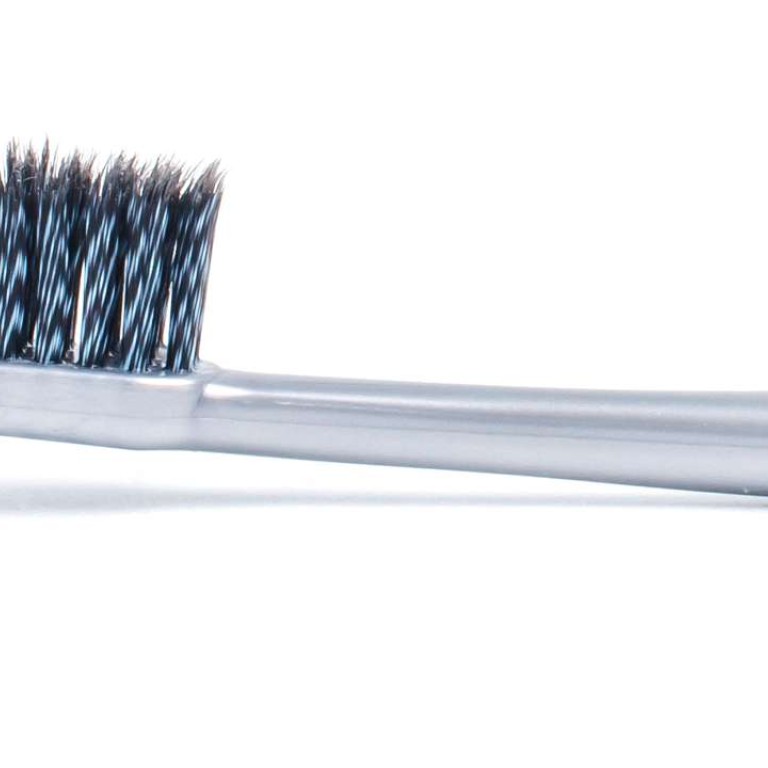
Why a Hong Kong dentist has some doubts about charcoal toothbrushes
Marketing says the charcoal-infused bristles offer a deeper, detoxifying clean but are they really any more effective than regular toothbrushes?
Are charcoal toothbrushes better for your teeth than regular toothbrushes?
The answer: No
These are no different from regular toothbrushes, except that they have dark grey or black bristles that have been blended or infused with “activated” charcoal particles – charcoal that has been processed to open up millions of tiny pores in its atomic structure, thereby increasing the surface area available for the absorption of toxins and stains. These toothbrushes are usually marketed as providing a deeper clean than standard toothbrushes, thanks to charcoal’s natural antibacterial and deodorising properties.
The use of charcoal in dental care is not new. Your grandparents or great-grandparents might have cleaned their teeth with charcoal powder when they were younger, before conventional toothpaste became commercially available. They might have combined the charcoal with other ingredients such as salt, baking soda or clove oil to make them more pleasant to use.

“Natural or holistic remedies are making a comeback as more and more people look to minimise the use of chemicals in their life,” says Dr Sandeep Jain, director of Smith & Jain Dental and Implant Practice in Lan Kwai Fong. “In the old days, people cleaned their teeth using charcoal powder because it was abrasive, and therefore effective at removing coffee and tea stains and even plaque. And indeed, I’ve come across a few in-vitro studies that prove the ability of charcoal to remove toxins.”
However, there are no studies proving the same effectiveness with charcoal toothbrushes, Dr Jain adds. He thinks oral care brands are merely basing their claims on the proven detoxifying properties of activated charcoal powder: if charcoal powder can whiten and clean, then in theory, so can charcoal toothbrushes.
“Charcoal toothbrushes are a marketing ploy, in my opinion,” says Dr Jain. “First of all, from what I understand, ‘activated’ is the key word when you’re talking about the effectiveness of these charcoal particles. If you use a toothbrush whose bristles have been infused or blended with charcoal, I’d expect that you would lose that activation after a couple of uses. Second, because no major studies have been done to actually test the cleaning or whitening effectiveness of charcoal toothbrushes, it’s difficult for me to back those claims. And another thing – how do you know that the bristles are really blended with charcoal? Who’s to say that you’re not just using a toothbrush with black nylon bristles? I can’t conclude that these toothbrushes clean your teeth better than regular ones.”
Still, if you like the idea of cleaning your teeth with charcoal, Dr Jain suggests using charcoal powder or toothpaste for better results. “Compared to charcoal toothbrushes, these are more effective at removing stains and other toxins from your teeth.” But, he warns that these products can abrade the protective tooth enamel, and should therefore be used sparingly and with care. “Charcoal powder is of course more abrasive than charcoal toothpaste, but both are useful if you are looking for a more natural method of cleaning your teeth.”
